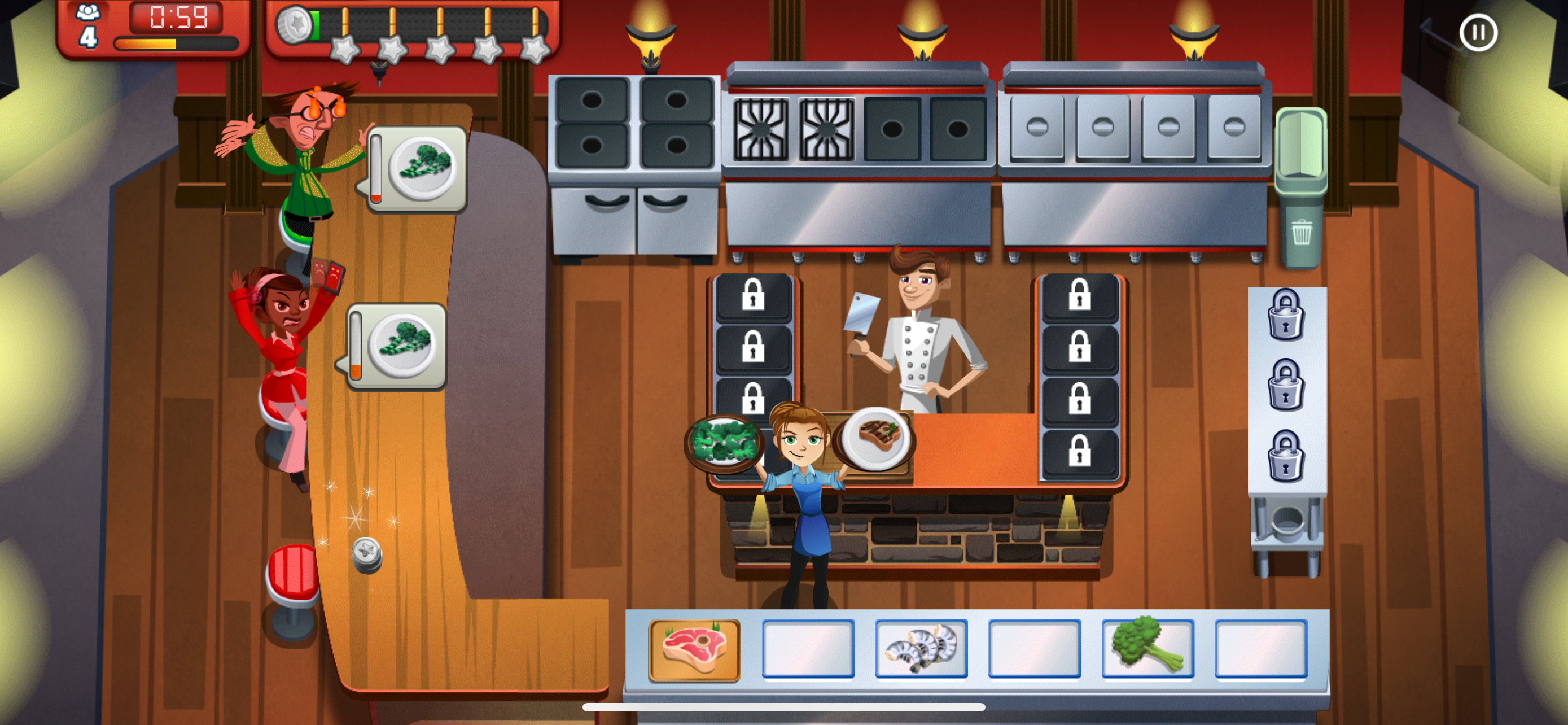I played Gamelab’s Diner Dash on mobile, marketed for players 8+ who enjoy time management games. On initial impression, Diner Dash appears to have all that is “bad” about games from a feminist perspective: multitasking orders, sanitizing tables, and keeping domestic mayhem in order while making all the customers happy. The game’s underlying mechanics—serving diners, ordering, cleaning, and dining—are reflections of the unseen emotional and domestic work feminist critics have long decried as undervalued and gendered. However, as Chess contends in “Play like a Feminist,” criticizing Diner Dash’s homemaking mechanics ignores the agential power in its game systems. Playing Diner Dash as a feminist shows how gameplay mechanics can transform underappreciated feminine labor traditionally done by women into performances of mastery.
Game mechanics are defined as “methods invoked by agents for interacting in a game world” by chess, showing how they depend on the agency of players. In Diner Dash, such an agency is sold by the player’s ability for the control of complex action sequences: seating patrons strategically to optimize efficiency, recalling orders in a way that permits smooth service, and providing food on time to satisfy customers. Compared to to the real restaurant life, where servers have no control over kitchen timing, customer behavior, or management choices, in Diner Dash, players can control all aspects that are associated with the diner life. Players excel at gaining enjoyment and success from activities denigrated by society. Domestic labor in the “real world” is unrecognized and uncompensated, but Diner Dash assigns value to it in the form of points, visible indication of contented customers, and incremental level unlocking. The floating hearts above happy customers quantifies emotional labor.
More stereotypically feminine time–management games such as Sally’s Salon or Cake Mania are concerned with visual management and romance stories, but Diner Dash does not emphasize efficiency of operation or strategic optimization, which separates it from other casual games that affirm feminine stereotypes through narratives. Compared to restaurant simulation games like Cook, Serve, Delicious! or Overcooked!, Diner Dash has a feminine perspective through the customer relationship theme. Although other games have cooking elements or kitchen coordination as central themes, Diner Dash highlights hospitality elements at the interpersonal level, e.g., customers’ moods, expectation management, and developing positive experiences. A feminine vision like this is different from masculine-coded management games with profit maximization in lieu of relationship building.
Although empowering, Diner Dash does have some negative aspects. The game’s emphasis on catering to the customers is always a top concern, which can perpetuate the stereotype that women are put ahead of others‘ needs rather than their own health. Flo never takes breaks, never has a bad day, and never deals with troublesome customers, which is not realistic.





